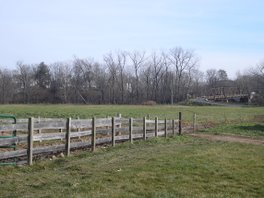I wanted to share an article with all that I found in the, "Insiders' Guide: Salt Lake City".
A Visitor's Guide to the Local Language
Most Utahns admit it: We talk funny. We're even a little proud of our verbal quirks. To a stranger's ear, many of us (even Salt Lakers) sound like Festus on Gunsmoke - kind of slow, slurred, and drawly. Utahns drop syllables, combine several words into one, insert syllables where none are needed, and inexplicably change the sound of vowels. Thus, fork becomes "fark", fire becomes "far", born becomes "barn," board becomes "bard," spark becomes "spork," study is "steady," and for becomes "fer." Combine the changed vowel with a dropped syllable and you get "fer ignernt," a classic Utahnism that means someone has been rude to you - perhaps a sales clerk who didn't respond quickly enough to your request to "lookit some farmal dresses."
Utahns often insert an extra "t" into words, then hesitate a bit between syllables, such as, "Didja see the new teatchur? She's purty as a pit-chur." Giddyap, cowboy.
Besides pronouncing words strangely, Utahn also have a special vocabulary, much of it derived from the Mormon religious heritage. Mormons take their religion seriously, which is a credit to them, but religious phrases and buzz words are likely to spill over into secular life in both print and conversation. ou'll find that Utahns are forever grateful, blessed, and humble. You might be startled the first time you hear peole calling each other brother and sister. Don't be alarmed: Mormons have big families, but not that big. They're not all related - it's just the traditional way they talk to each other. And elder doesn't refer to a senior citizen. It's a designation, like rank, among Mormon men.
Then there's the issue of Utah swear words. Utahns don't cuss much, but when they do, they're likely to launch verbal hand grenades, most prefaced by "oh," like "fetch," "shoot," "scrud," and "my heck." (Watch out for this one - it indicates extreme anger.) You'll also hear the word "gol" spoken a lot, as in "Gol, VernaLee, wherdja git them gargeous shoes? Fer cuute!"
Various theories have been put forth explaining the origins of our local language. Perhaps it's the combination of peoples from all over the world who moved to Utah to create a distinctive community. Many Utahns trace their ancestry back to Northern Europe, but the mining industry brought in Greeks, Poles, Italians, and Americans from the South, all of whom seasoned the linguistic stew. Maybe it comes from the traditional culture of Utah. Even though most Utahns live in crowded cities, conservative, rural politics dominate the state, and the agrarian way of life is much admired and emulated, including speech. In addition, many of Utah's cultural, religious, and civic leaders come from small towns, and Utahns revere their leaders like no place else. It's natural for the speaking patterns of the rich and powerfl to spread into the general population, which means that everybody ends up talking like a farmer from Southern Utah. Who knows?
Salt Lakers like to think it's the people from small towns who talk like hicks. The truth is, although our accents aren't quite as broad, to someone from Seattle or Kansas City, Salt Lakers sound like the rubes of Green Acres. We may despair and yearn to speak like Lawrence Olivier, but in the end, what the fetch cunna feller do? Some things you just can't escape.
Here is a further example of our uncharacteristic tongue: The granger of Zion Pork zawn spyring. (The grandeur of Zion Park is awe-inspiring.)
He was tard cause he got up surly fer the prayed. (He was tired because he got up so early for the parade.)
I went down to the Macey's for a galna fruit punch anna cord a melk. (I went to Macey's for a gallon of fruit punch and a quart of milk.)
In Store Wores we learn 'bout Dorth Vader 'n' the dork side of the farce. (In Star Wars we learn about Darth Vader and the dark side of the force.)
I git a rill wharm fillin' win I go backta muncle's form. (I get a real warm feeling when I go back to my uncle's farm.)
It's not really a foreign language, though it may seem so, especially to those who speak English as a second language and a few proper-speaking New Englanders. Give yourself a day or two. You'll catch on.
**I share this article because it contains the blunt truth, but doesn't it also remind some of you of a certain local in Western Virginia?**
Wednesday, August 31, 2005
Subscribe to:
Post Comments (Atom)


No comments:
Post a Comment